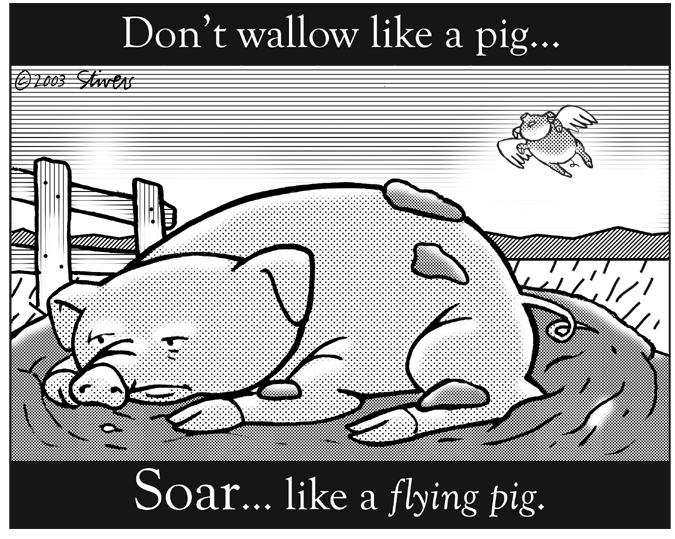Everyone loves a party. Right? Wrong !
Ever had the following night mare "You attend a gathering where the guests are laughing, drinking and making merry. All the while you are standing alone,looking forlorn and lonely. You fear everyone thinks you are stupid, desperate, fraught with anxiety and craving human contact"?
I have. Every end of year Christmas party. Especially those big end of year bashes where the only person you know is the person who came with you. I especially hate my husbands end of year professional membership Christmas Party. The only time we see these people is at this dinner and the only thing they have in common, for the most part, is their professional affiliation. Yawn, Yawn. for anyone who is not an engineer. Partners are dragged along kicking and screaming on a promise it will be an early night. Before the event I get myself in a twist about what to wear, what conversational starters can I use (the dreaded small talk), who will we share a table with or will we be stranded at a table by ourselves, and how will I orchestrate an early escape without being too obvious.
Even more daunting is the Solo invite - you know where you have to enter alone, skirt the room and hope you blend in with the wall paper or look busy checking your phone, all the while thinking "Should have phoned in sick - because now I definitely am". Arrrrgh.
With only 43 days 14 hours and 23 minutes to Christmas, your mail box and inbox are probably being flooded with Christmas Party invites as we speak. You know you won't be able to say avoid them all so it's time to acquire a few pointers on how to survive the party season.
Tips and Tricks to not only Survive but Enjoy Parties
Leil Lowndes in her latest book "How to Instantly Connect with Anyone (McGaw Hill, New York, 2009) provides the following advice to avoid the following night mare every party goer has suffered at some point in their life:
- Be Early - Yes, I know this goes against your instincts and the advice of friends but it might be worth a try. If you are among the first to arrive you meet everyone as they arrive and become part of a small group of early birds. As more guests arrive the group you are with will introduce you to the newcomers.
- Make a Cross Introduction Pact: Agree with a friend before hand that you will introduce each other to the other guests you each know thus increasing the number of connections by double. Best not to assume your buddy will do this automatically - make a verbal agreement.
- Smile at Other Loners as they Enter the Party: A warm friendly smile will boost their confidence and they will gravitate towards you at some point during the evening.
- Wave to Imaginary Friends (Not inclined to take this advice Leil - but I'll share anyway): When you are faced with a sea of strange faces, don't stop at the door with a terrified look on your face - glide right in and wave to the spaces between bodies at imaginary people across the room. Other guests will assume you know lots of people there, you'll feel more confident (I'd feel stupid, but hey Leil, I'll assume you've tested this one and it works) and people will be pleased to speak with you as you appear to be very popular. Love to hear your views on this one guys. I'm not fussed and won't be trying it any time soon.
- Conversation Starters: Getting a good conversation going with strangers can be more difficult than starting your car in sub-zero temperatures. Leil says to get the engine turning over ask someone what their typical day is like. Looking for more tips then visit Conversation Starters.com for some ice breakers and lots more.
- Forgot Someone's Name (I can do this immediately after I have been introduced and feel like a real klutz when placed in the sadistic social situation where I have to introduce them someone else). Don't worry we can all be subject to the name forgetting plaque. A great rick, that doesn't fool anyone but is acceptable is to ask them to "Please introduce yourselves" Works best if 3 - 4 people are present. If like me, you weren't listening properly at the start of the conversation, finish by saying "It's really been great talking to you . Once again my name is ......." Then give an expectant look without actually asking their name. Leil says their is a 90% chance they will restate their name.
- Avoiding Hard core bores and other party poopers: Check out my blog on Social Pigs
- Tip from the Wise Monkeys: they see no hanky-panky, hear no hanky- panky and speak no hank-panky. Just don't gossip -you never know who might be listening. I was recently told a story about a young man who couldn't help telling a work colleague about the "new hottie working in the bakery" only to find out he was talking to said "hottie's" mother. Red faced young man on the retreat I should think.
- Seek out the Golden Girls:"Find the oldies!", says Sydney sider Amy Rudder. It's true, they love a chat, they'll make sure you're fed, chattered and thoroughly interrogated in the most charming of ways.
- Prepare a Snappy Introduction: Psychology Today also advises introverts to: "prepare a snappy way to introduce yourself… prepare a line or two to introduce yourself with flourish to avoid that generic 'I'm an accountant' effect."
- Pace Yourself: You don't have to accept every invitation and you don't have to be the last to leave. You can even take a breathe while at a party by stepping out for a breath of fresh air if it gets too much. Find yourself a time out space if necessary.
- Keep Busy: Having nothing to do gives you too much time to fret. If possible, consider hosting an event so you can keep busy, or volunteer to help out the host in the kitchen
- Have a Goal for the Evening:It could be to meet someone to date, talk to someone new or catch up with the guest of honour. Eric Ravencraft in his article "How to Survive a Party or Social gathering as an Introvert recommends you have a goal to help you focus. He says " Having a goal helps you define what you want to accomplish in an outing, but more importantly, it keeps your brain focused. Part of the problem introverts have with big social gatherings is the constant flood of external stimulus. By giving yourself a specific task, you occupy your brain so it's less focused on the thumping music or bright lights .
- Prepare Yourself: Whenever possible, make sure to take some time for yourself before you head out for an evening of socializing. Relax. Dress to Impress but according to the correct dress standard (black tie v casual). Read about some topical issues to generate small talk and when you're feeling pumped up, head out for the shindig.
- Prepare an escape Plan: Having an escape plan provides you with a measure of control and this elevates your confidence to a certain degree. If you attend with friends who want to party on make sure you or they (if you were the transport) have an alternative method of getting home. There is nothing worse than being stuck at a party you've lost energy for or interest in.
- Alcohol and all that Jazz: We have all probably been the worse for wear following a party where the booze if free flowing and smoking indoors is acceptable. The music is blasting and the food supply would feed a small nation for a month. Check out these tips at ABC Health and Wellbeing to get you through the next month without causing undue harm to your body and mind.
All in all, parties aren't all that bad—that is, if you know how to survive.
Have there been any parties that were pure torture? How did you survive? Any tips to help me get through another end of year party? It's only 2 weeks away so I need your HELP now.





























.jpg)











